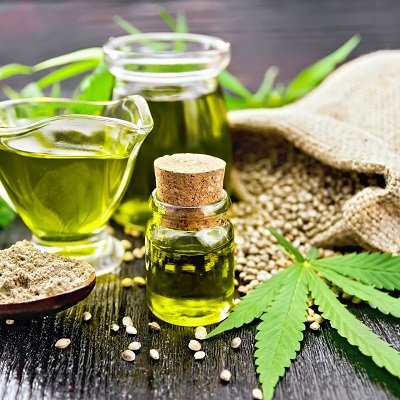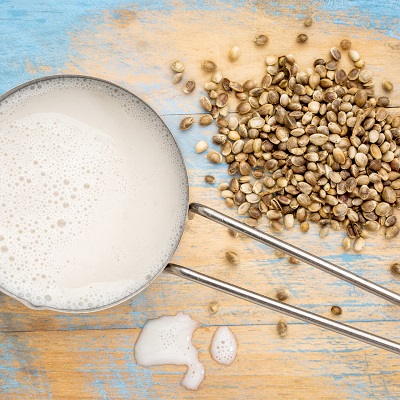20 Nov Hemp briefing paper
By Niki Bezzant
What is hemp?
Hemp is a strain of the Cannabis sativa plant. It’s been cultivated for thousands of years for its fibre, edible seeds, edible oil, lubricant, and for use as a fuel.
The hemp plant is highly versatile. It’s been used for centuries to create textiles, building material, medicines, food and fuel.
Hemp is also a highly sustainable crop since it is ‘low input’, requiring no fertiliser, pesticides or water. It’s an emerging crop in New Zealand, with growers and farmers looking to hemp as an alternative to other crops or animal farming. The Hemp Industry Association says Hemp is an ideal rotation crop, helping to break up and condition the soil for following crops due to its long root structure penetrating deep into the soil, which helps aerate the soil.

Will hemp get me high?
Though it comes from the Cannabis plant, hemp is not psychoactive. That’s because it does not contain the tetrahydrocannabinol (THC) found in marijuana, the form of cannabis that gives a ‘high’. You can’t get high from hemp or hemp products.
Is hemp legal?
Industrial hemp has been legal to grow in New Zealand since 2001, though hemp foods haven’t always been allowed to be sold during that time. This law was finally changed in 2018, making all hemp-based foods and oil legal to be sold as foods for humans.
Hemp growers need a licence from the Ministry of Health, and only certain cultivars are allowed to be grown under this licence.
How is hemp used in food?
You’ll see many foods containing hemp on the shelves; it has been an emerging product since the laws around selling it were updated. As well as finding it as an ingredient in many foods including breads, wraps, cereal, snack bars and balls, nut butters, crackers, smoothies and even burgers and cookies; you’ll also find these ‘whole’ hemp foods:
Hemp seeds
These are the whole seeds; they can be added to foods such as cereal and smoothies and used in baking.
Hemp hearts
These are the hulled hemp seeds – i.e. the outer layer of the seed has been removed. They can be used in similar ways to the whole seeds.
Hemp Oil
Hemp oil is made from cold-pressing hemp seeds. It’s a nutty-flavoured oil, dark in colour. It has a low smoke point, so is best used for dressing and finishing rather than cooking. It’s often advised to keep hemp oil in the fridge or freezer to prolong its shelf life.
Hemp protein
Hemp protein is made by grinding up whole hemp seeds to a fine powder. It can be used in the same way as other kinds of protein powders.
Hemp flour
Hemp flour is made by finely grinding or milling the seeds which have had the oil removed. It’s a high-fibre, gluten-free flour that can be added to baking, though it’s not suitable as a complete replacement for regular flour, since it doesn’t perform the same way in baking.
Hemp milk
Hemp milk is made in a similar way to other plant milks, by blending hemp seeds or hearts with water and flavourings. It’s a dairy-free milk similar to other plant milks. It’s not comparable to dairy milk in terms of nutrition, being low in protein and not naturally containing calcium, though this can be added in some cases.

What are hemp’s nutritional properties?
Protein
Hemp seeds are high in protein compared to other seeds. Hemp is a complete protein, which means it contains all nine essential amino acids. This is fairly rare among plants – quinoa is another example – so it could be useful for people who are not eating animal foods.
Fats
Hemp seeds are high in omega-3 and have a good balance of omega-6 and omega-3 fats. Omega-3 fats fight inflammation and have heart health benefits.
It’s important to note that the omega-3 in hemp – like that found in seeds and nuts – is different to the omega-3 we get from animal sources like oily fish. It may be more difficult for our bodies to process and absorb this type of omega-3, and we need more of it to get the equivalent benefit of fish oils. But for people who are vegetarian or vegan, hemp products could be a useful way to get omega-3 into the diet.
Fibre
Like other seeds, hemp seeds are high in fibre, containing up to 15% fibre in the whole seeds. Hemp flour can be up to 60% fibre, since it’s made mostly from the fibre-rich hulls. Using hemp products (apart from oil) could be useful in increasing fibre intake, which helps keep the digestion moving. Those prone to Irritable bowel syndrome (IBS) may find hemp seeds useful as a way of boosting fibre.
Other benefits
Hemp seeds also contain iron (non haem, as with other plant foods), vitamin E, manganese, magnesium, B-vitamins and Zinc.
Research on hemp
Because of hemp seeds’ protein content and healthy fat profile, research into hemp’s health benefits has been growing in recent years. Researchers are looking at how hemp might be used in the food industry as an ingredient and also how it might benefit health. Evidence on the latter is emerging.
Several animal studies have found hemp seeds or hemp seed oil may reduce blood pressure, decrease the risk of blood clot formation and improve cholesterol levels. Human trials on hypertension are underway.
There’s also some research looking at the effect of hemp seed oil, when consumed, on skin conditions like dermatitis and eczema, that’s found a positive effect.
Why am I seeing hemp everywhere?
There’s been an explosion of foods containing hemp in the past couple of years. That’s partly due to hemp’s interesting nutritional properties, and partly due to consumers’ increasing interest in plant-based foods. There’s a degree of marketing of hemp products from manufacturers looking to benefit from hemp’s ‘health halo’; it is worth investigating nutrition information panels to discover how healthy (or not) the products really are.
We can probably expect to keep seeing hemp in food products as the growing of hemp increases in New Zealand.
Bottom line: is hemp healthy?
Hemp is a healthy whole food that has some useful nutritional benefits. The more whole forms of hemp – the seeds, hearts, flour, protein and oil – are more likely to deliver nutritional benefits than some of the processed foods on the market. As with all foods promoted for their health benefits, hemp is not a super food. But it is a food that fits into a healthy pattern of eating.

